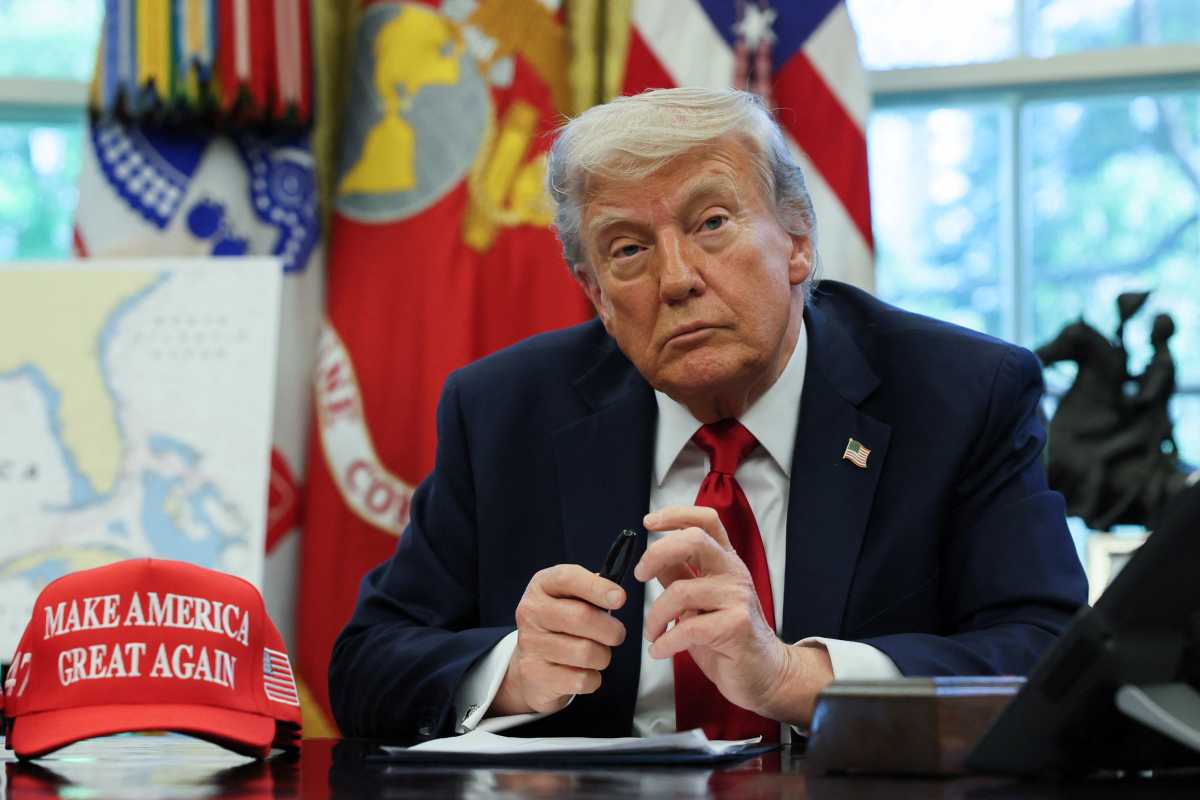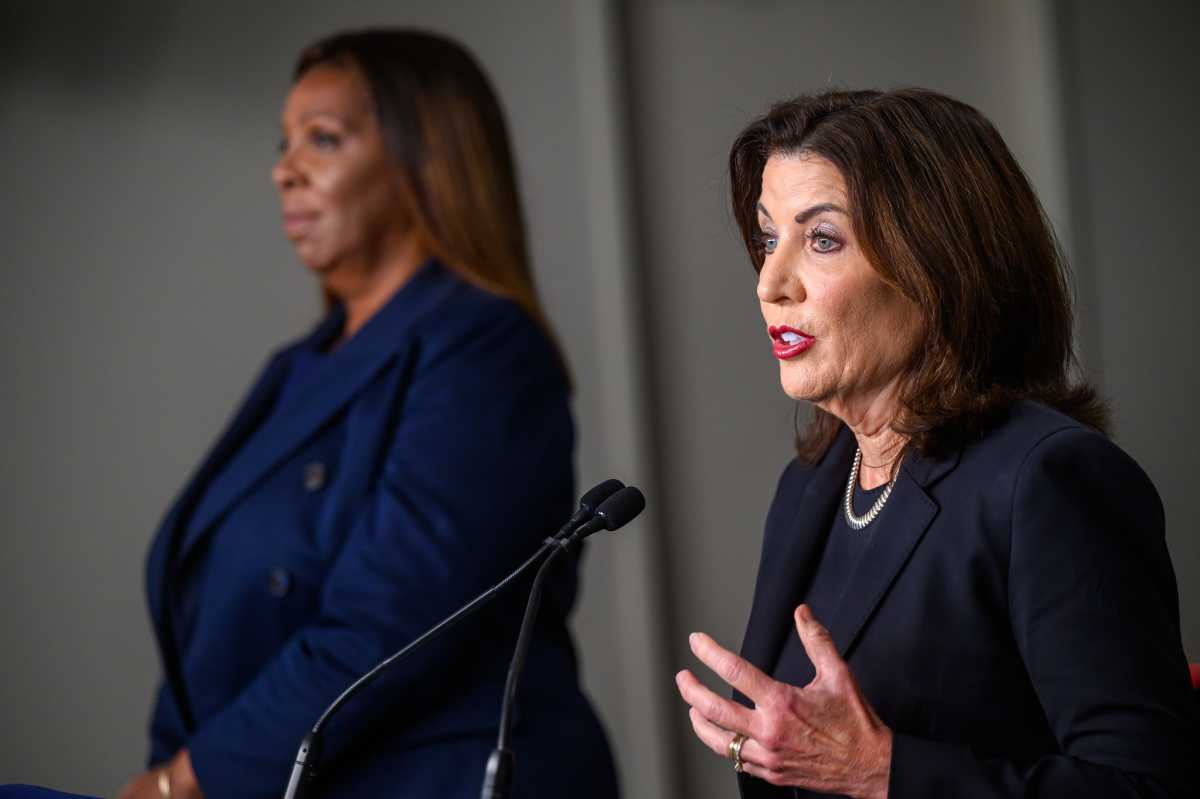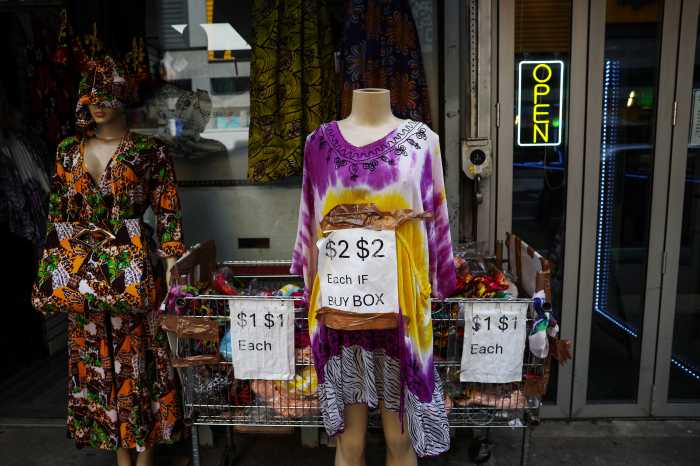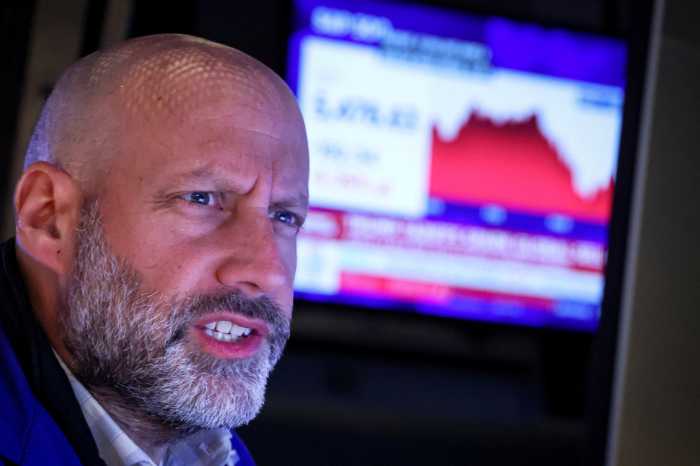New York joined a coalition of 11 states on Wednesday that are suing to stop President Trump from imposing costly tariffs under emergency powers in what officials call the most significant “federal tax hike in American history.”
In a bid to block the tariffs, state Attorney General Letitia James and Gov. Kathy Hochul filed the lawsuit on April 23, claiming the administration’s use of the International Emergency Economic Powers Act (IEEPA) to raise taxes on imports from nearly every country violates federal law, stating it only applies in the face of an “unusual and extraordinary threat.”
With this lawsuit, James and Hochul said the coalition is seeking a court order declaring the Trump administration’s IEEPA tariff orders to be in violation of the law and ordering the administration to stop implementing or enforcing these tariffs.
The suit notes that only Congress, not the president through executive orders or agency actions, has the authority to impose such tariffs under the Constitution. However, in the past, Congress had delegated some tariff power to previous presidents.
“The president does not have the power to raise taxes on a whim, but that’s exactly what President Trump has been doing with these tariffs,” AG James said in a statement. “Donald Trump promised that he would lower prices and ease the cost of living, but these illegal tariffs will have the exact opposite effect on American families. His tariffs are unlawful, and if not stopped, they will lead to more inflation, unemployment, and economic damage.”
Stopping ‘economic chaos’

Hochul said the tariffs have already driven up consumer prices and created “economic chaos” across the country.
“New York is standing up to fight back against the largest federal tax hike in American history,” said Hochul. “Attorney General James and I are partnering on this litigation on behalf of New York consumers, because we can’t let President Trump push our country into a recession.”
The attorneys general of Arizona, Colorado, Connecticut, Delaware, Illinois, Maine, Minnesota, Nevada, New Mexico, Oregon, and Vermont are joining New York in the lawsuit.
The lawsuit, filed in the U.S. Court of International Trade, seeks to halt tariffs issued under IEEPA that the states claim have severely impacted local economies, small businesses, and consumers.
“The tariffs will depress Americans’ wages by slowing economic growth, increasing unemployment, and raising inflation. And, instead of reducing threats to Americans’ consumption levels, the tariffs will make the goods that Americans (and the Plaintiff States) depend on more expensive and scarce,” the lawsuit reads.
The costs of higher tariffs in New York
Regarding the tariff impact on New York, the lawsuit references a warning from New York’s Office of General Services (NYOGS) that tariffs imposed on imports from Mexico, Canada, and China will significantly raise costs across state operations, particularly in construction and energy.
In 2024, the NYOGS managed about $1 billion in construction bids, half of which went to materials. The lawsuit alleges that if 37% of materials are subject to a 25% tariff, project costs could rise by $40–$50 million.
In terms of energy, New York heavily relies on electricity imported from Canada — 7.7 terawatt-hours in 2024 alone. The lawsuit states that threats of retaliation from Ontario and Quebec, including potential restrictions on electricity exports, could spike energy prices at a time when the state is already facing capacity constraints and increasing reliance on Canadian hydropower
“New York cannot simply buy less electricity or buy electricity from other sources,” the complaint states.
NYOGS also estimates 50–75% of New York’s purchases are sourced from tariff-impacted nations: “Based on an estimated average total spend of $5 billion, a 25% tariff on Mexico and Canada and a 10% tariff on China will likely have a portfolio-wide impact of roughly $106 million for New York State agencies.”
The suit also argues that President Trump’s use of the IEEPA to impose, change, and reinstate tariffs – often through executive orders, memos, or even social media – has created a chaotic and unpredictable trade policy driven more by impulse than informed decision-making.
Between March and April, the President implemented at least four major tariff changes, along with various clarifications, exemptions, and retaliatory increases targeting China.
The suing states contend that this instability not only unsettles financial markets but also disrupts their ability to manage public spending effectively.





































